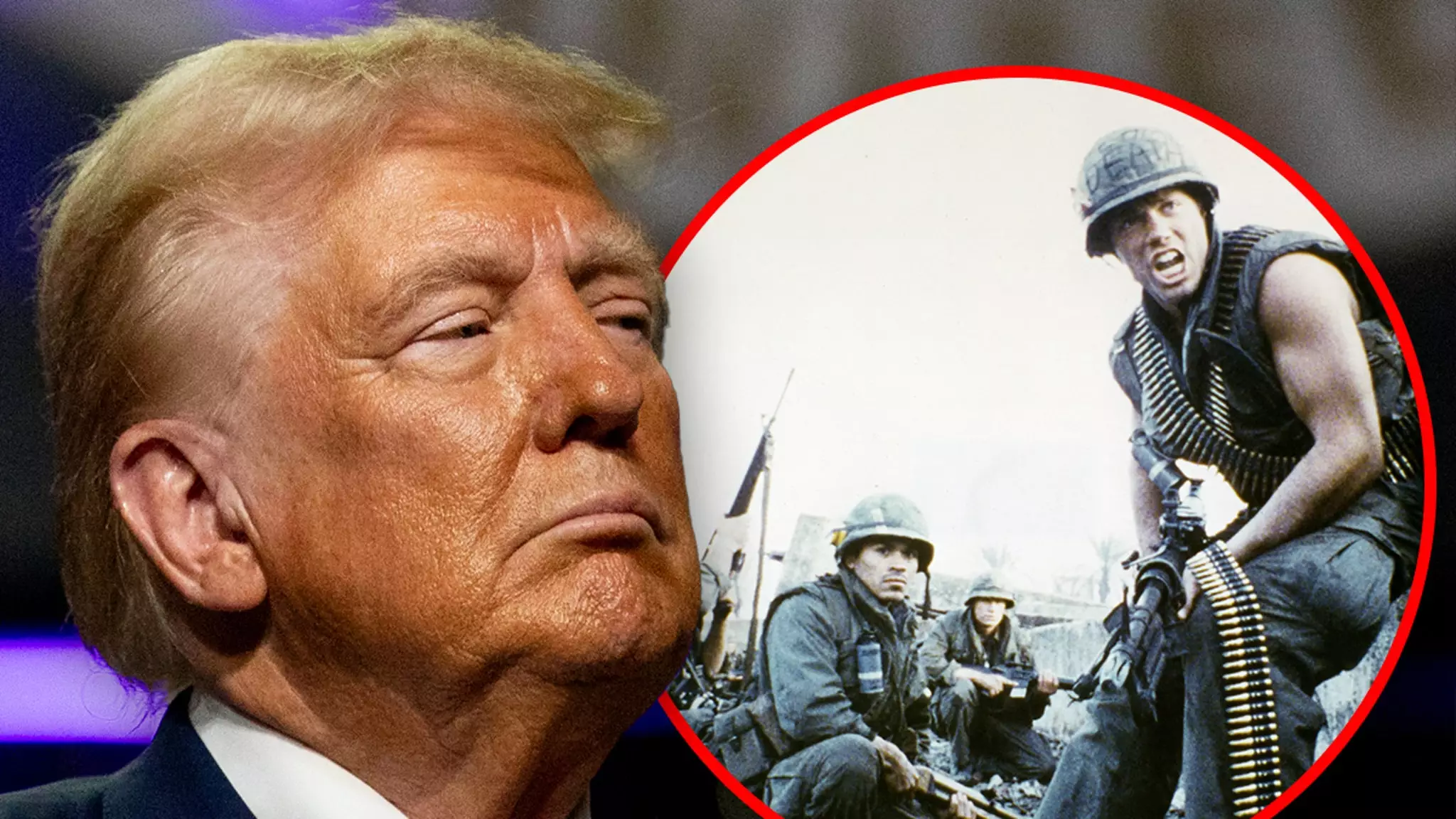At a recent rally in Coachella, California, former President Donald Trump amplified his controversial vision of America’s military, sharply criticizing what he labels the “woke military” concept put forth by current political leaders, including Vice President Kamala Harris. This rhetoric is not merely a passing comment; it reflects a broader ideological battle over the identity and values of the United States armed forces. By juxtaposing clips from Stanley Kubrick’s iconic film “Full Metal Jacket” with contemporary imagery of service members engaging in drag, Trump aims to paint a picture of a military in moral decline—one that, in his view, is ill-prepared for the realities of warfare and national security.
The video Trump presented at the rally serves as a powerful example of visual rhetoric, effectively framing a narrative of strength versus weakness. In his post on X (formerly Twitter), Trump asserted, “WE WILL NOT HAVE A WOKE MILITARY!” which signals a rejection of modern inclusivity initiatives that have been embraced in recent years. By invoking the imagery of militaristic toughness seen in “Full Metal Jacket,” especially through the harsh mentorship of the Gunnery Sergeant, Trump romanticizes an ideal of the military that many argue is outdated. The film’s notorious scenes of discipline and aggression are used to suggest that these qualities are essential to a strong fighting force, while dismissing the complex realities of contemporary military life that necessitate a more inclusive environment.
Trump’s rhetoric clearly indicates his disdain for advancements like the repeal of “Don’t Ask, Don’t Tell,” which allowed LGBTQ+ individuals to serve openly in the military. This duality becomes even more pronounced as he portrays diversity initiatives as detrimental rather than beneficial. The overarching implication of Trump’s argument is that a return to a so-called “old school” military would result in a more formidable fighting force, neglecting the contributions and sacrifices made by diverse service members who have proven their loyalty and competence on the front lines. This narrative can be seen as an attempt to galvanize a segment of the electorate that feels alienated by shifting societal norms.
As the 2024 presidential election approaches, the question arises: what would a Trump-led military look like? While it is clear that Trump seeks to roll back many of the progressive changes implemented in recent years, the logistics and legalities of such measures remain ambiguous. Would he reinstate policies that restrict the service of LGBTQ+ members or eradicate diversity training entirely? Such actions would likely ignite a fierce political backlash, rekindling the debates over military readiness in a modernized world.
Donald Trump’s vision for the military represents a clashing narrative between traditionalism and modernity. The theatrics of his rally, complete with provocative video clips, are not just a mere political maneuver but a profound statement that taps into a deep-seated desire for a return to conventional military values. As this discourse evolves, it will be crucial to analyze the implications of these sentiments on the broader military structure and morale.

